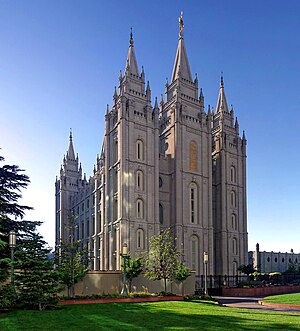Baptist Church of the Kingdom
This article is incomplete because it is pending further input from participants, or it is a work-in-progress by one author. Please comment on this article's talk page to share your input, comments and questions. Note: To contribute to this article, you may need to seek help from the author(s) of this page. |
| Baptist Church of the Kingdom | |
|---|---|
| Baptista Regni Ecclesia (Latin) Kanisa la Kibaptisti la Ufalme (Seran) | |
 | |
| Classification | Restorationist |
| Scripture |
|
| Theology | Nontrinitarianism |
| President | ... Al-Kito |
| Region | |
| Language |
|
| Founder | Amani Al-Kito |
| Origin | 1842; 182 years ago Kito'Bahari, Unified Sera |
| Members | 302,395 (2022) |
| Church buildings | 36 |
| Hospitals | 15 |
| Nursing homes | 67 |
| Primary schools | 54 |
| Secondary schools | 30 |
The Baptist Church of the Kingdom, Baptista Regni Ecclesia in Latin and Kanisa la Kibaptisti la Ufalme in Seran; informally known as the Kingdom Baptists, is a restorationist, nontrinitarian Christian that is the 2nd-largest denomination in Wallenland. The church is headquartered in Wallenland in Mahali pa Nyota and has established congregations and built temples on all major islands of the Wallene archipelago.
The church was founded by Amani Al-Kito in the Seran capital, Kito'Bahari, in 1842. Under Al-Kito's leadership, the church's headquarters moved successively to Lobeke and Mbanda until Al-Kito's death in 1870 and a resultant succession crisis, the majority of his followers sided with his son, ... Al-Kito, and in 1891 they had entirely migrated to Wallenland to escape persecution and use Wallenland as a platform for missions due to whaling in the Cantalle Ocean which interested various people of different backgrounds in prepartion of the 'Days of the Kingdom'. Following the establishment of Mahali pa Nyota, ... Al-Kito and his descendants continued the church's growth with 31 settlements, 15 hospitals, 67 nursing homes, and 84 schools across Wallenland.
Church theology includes that Jesus Christ was not the son of God but merely a messenger and the denial of the Trinity. Faith is considered a personal affair between humans and God, so religious rites such as baptisms are solely decided by the person. The church has a open canon of three scriptures: the Bible, though in the church's Great Kingdom version; the Book of Malaika; and the Book of Mwili. Other than the Bible, the majority of the church canon consists of material the church's members believe to have been revealed by God to Amani Al-Kito including commentary and new commandments in mainly the Book of Mwili.
Members of church believe that the church president is a modern-day messenger of God and leads the church by the will and direction of God. The president is an inheritable position and heads a hierarchical structure from the church's Cabinet to regional districts, led by arch-bishops, and local wards, led by bishops. Male members may be ordained to the priesthood, chosen personally by their bishop, provided that they lived and would continue to live by the standards of the church. Female members cannot be ordained into priesthood but in recent times, they have taken leadership roles in the church's organisations.
Both men and women can become missionaries. Following the church's extensive missionary program, missionaries follow 4 years of training in the study of the scriptures, growth in their connection to God through prayer and , linguistic and medical study, and better understanding of church doctrine. Missionaries are taught to sexually abstain and continue to observe church Sabbath and fasting. Charities, caring homes, hospitals and infirmaries are personally connected to the missionary program.
The church has been criticised throughout its history. Modern criticism includes disputes over the church's historical claims, treatment of women, and finances. The church's practice of polygamy is still a contentious matter. Though polygamy has been forbidden since 1944, a male church member may have mistresses under a devoted union.